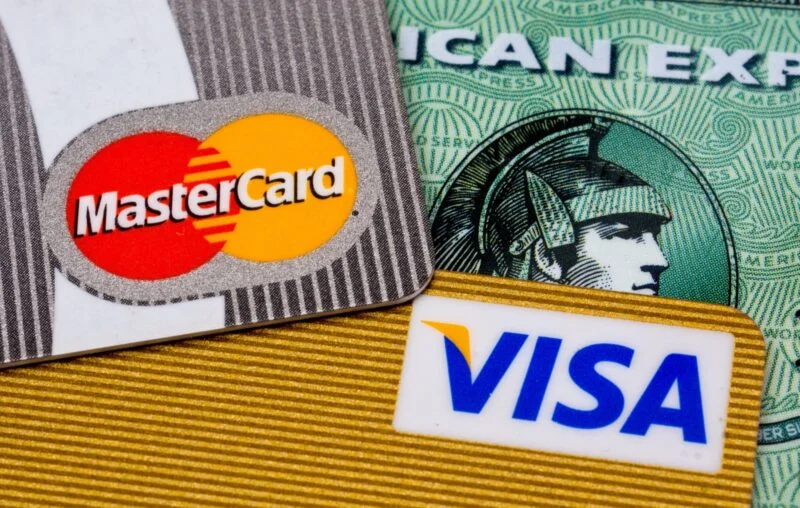Competition Can’t Be Perfect

We all like competition. Adversarial contests bring us better candidates in elections, more just outcomes in courtrooms, and beauty and excitement in sports.
In commercial society, competition disciplines market actors, encouraging low prices, good quality, and constant innovation. As an economist at the US Federal Trade Commission, early in my career, I researched ways competition benefits consumers, and helped enforce the rules that keep competition healthy.
In the past five years, there has been a strange, and misguided, wave of academic writings and legal trench warfare. The authors of these revolutionary proposals, mostly well-meaning people trained in law rather than economics, are harming the US’s competitive position as a leader in productivity and innovation.
If you’ve ever taken an intro economics class, you’ve heard of the idiotic concept of “perfect competition.” The idea is that no firm has any market power, and is forced to accept the “competitive” price. One sign that competition is “perfect” in this way is zero profits. Since if something is perfect, it must be desirable, a new generation of attorneys is attempting a wholesale takeover of antitrust enforcement. They are being led by advocates such as Lina Khan of the FTC, and Timothy Wu of Columbia Law School, who is hailed by some as the “architect” of the Biden administration’s competition policy.
The problem is that competition in commerce, just as in elections, courtrooms, and sports, requires considerable resources and organization. The participants must practice, prepare, and put forth their best effort for the process to work. In commerce, this means that firms can operate at sufficient scale to invest in research, to develop new products and processes of manufacture, and can coordinate the activities of complex supply chains and technical requirements. New firms, and entire new industries, can spring up overnight, offering competition in areas that only a short time ago seemed like hidebound monopolies.
Walmart was once seen as the destroyer of worlds, forcing the closure of main street shops across the country. The fear was that once all the competition was destroyed, Walmart would raise its prices. Except, that didn’t happen. In fact, prices have continued to fall, in real terms, and consumers have benefitted. Unexpectedly, an upstart online bookstore started to sell products and deliver them directly to consumers. Amazon, a giant, started competing with Walmart, another giant. Both were able to set prices, which was clearly not consistent with perfect competition. But since they kept setting lower and lower prices, consumer reaped huge rewards.
Of course, both companies are profitable; doesn’t that mean their prices are “too high”? This is the heart of the matter, and it’s the central reason why the new competition policy militants in the Biden administration are doing great harm.
Under perfect competition, with many small, inefficient firms, it is true that no one makes a profit, because costs are high and firms cannot operate at a scale sufficient to drive those costs down. Prices paid by consumers in “perfect” competition are actually higher, and probably much higher, than prices paid in a system with real competition, contests for profits fought by large firms able to design new and cheaper ways to serve customers.
In just the past month, we have seen how contradictory, and frankly harmful, the new perfect competition paradigm can be. The logic of antitrust enforcement is to take the “industry” as a narrowly defined set of firms all in the same business, and then to imagine breaking up those firms into smaller subparts, to create more choices for consumers. That logic catastrophically precludes actual increases in the real kind of competition — new firms strong enough to offer a real fight.
Senator Elizabeth Warren recently argued that the Biden administration, through the FTC, should block the acquisition of Discover by Capital One. Her logic has been “perfect competition,” two small firms are better than one medium-sized firm. Yet one need only take a look at the larger industry, where Visa, Mastercard, and American Express control fully 98 percent of credit-clearing transactions, to realize the folly of that approach. If the Capital One-Discover marriage can be consummated, there will be more competition in the industry, not less. The newly formed entity would have the financial power, and the scale of transactions, to force the credit card industry out of its anachronistic ways.
The current infrastructure was built to clear transactions in an era where a card with raised letters was placed in a machine, and run “Ka-CHUNK” over by a press to create carbon paper copies, which could then be processed. The level of fees is too high, and the technical aspects of clearing transactions are cumbersome and wasteful.
To be fair, there are other problems with the industry, but those are most often created by regulators, and a strange judicial concern for “fairness.” The two biggest problems are the 2018 Supreme Court case that requires retailers to accept all credit cards, and the financial regulator’s bizarre restriction on charging more for cards that charge higher fees. This is actually patently unfair, since it means that most of us subsidize the “money back” provisions for the largest, and wealthiest, card users. The combination of a requirement that all cards must be accepted, and the regulatory prohibition on price competition, create the real threat to competition.
But in the meantime, and also over the longer term, adding a new player to this contest — especially a player with the financial punch of a combined Capital One/Discover, creates an environment where rapid change could take place, in directions that will quickly reduce costs and speed up transaction clearing. It’s time to put the misleading definition of competition back on Econ 101 blackboards where it belongs, and bring real competition to the financial services industry.










